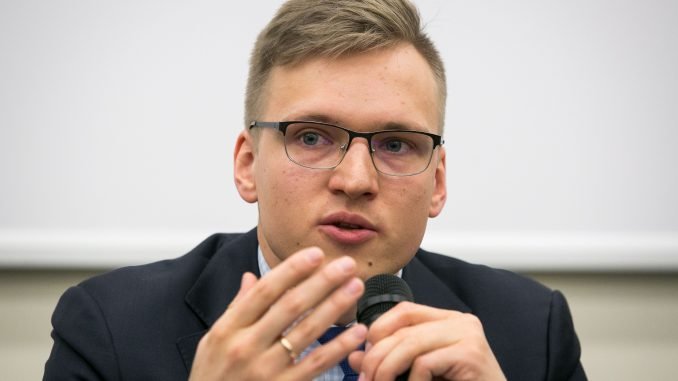
Last Friday Brussels was host to the Fifth European Union and Eastern Partnership states – Ukraine, Georgia, Moldova, Azerbaijan, Armenia and Belarus – summit meeting. If we are to recall the analogous meeting held in Vilnius in 2013 when Lithuania was chairing the European Council, it was a massive event, analysed and discussed in detail both before and after.
Then Ukrainian President Viktor Yanukovych hesitated until last minute whether to sign the association agreement and upon failing to do so he provoked protests in the Maidan which led to the rest of the chain of events. Meanwhile the main expectation for the meeting itself was the European Union’s commitment to grant Eastern Partnership states membership prospects and it was not understood (unlike today) as a provocative topic. However this year’s summit is completely different, Vytautas Keršanskas writes on LRT.lt.
No particularly significant decisions were made during the meeting in Brussels. In the case of Ukraine, Georgia and Moldova, which have already signed association agreements, most of the attention was dedicated to the transfer of the premises outlined in them, such as various sector reforms, powerful financial aid mechanisms and such. Talks about a depth of integration with the EU which would satisfy both parties were held with the “non-progressive” programme participants, which either cannot or do not desire to reach such agreements. Thus the ambitious association agreements in regard to these countries have been shelved for an indeterminate time.
Possibly the most tangible accent of the Brussels summit is the signing of a deeper and more comprehensive cooperation agreement with Armenia, though this is still far from a real breakthrough. A similar document with Azerbaijan is still in the negotiation phase, meanwhile the dialogue being held with Belarus is limited to separate spheres such as trade and human rights.
The declaration passed at the end of the meeting outlines twenty priorities for the future direction of the Eastern Partnership Programme, which the signatories will strive for. This declaration continues a goal of European Neighbourhood Policy outlined already in 2015 – the pursuit of stability, thus most of the twenty priorities are aimed at public sector reform, implementing trade agreements, reducing social and economic inequality and other matters which ensure the more stable development of Eastern Partnership states.
Nevertheless in term of challenges for the programme, it is worth highlighting three factors – the Russian factor, the lack of the states’ elite and public groups’ intention to patiently and consistently walk down the European path and furthermore the EU interest in supporting this programme or seeing it as a top priority.
While the Brussels programme specifies that it is not aimed at any third state’s interests, Russia has viewed the Eastern Partnership creation from the start as the diffusion of Western influence into its sphere of influence. Thus it is using all its means of influence in order to “derail” these states from a European path.
On the other hand the states and their societies themselves are split over European integration because the benefits from the Association agreements will only become tangible in the long term, while the short term costs are great.
Finally the EU itself is no longer certain what the Eastern Partnership programme means for it. While the initial neighbourhood policy goal was to create a ring of safe and thriving states nearby, with accents of the programme’s contribution to stability having increased in recent years, far more ambitions based on core European values appear to have been relinquished. Just consider that Alexander Lukashenko was invited to the summit, the head of a country that still has political prisoners.
By the way, Belarus’ representative, its Minister of Foreign Affairs Vladimir Makei received further attention thanks to Dalia Grybauskaitė over the Astravyets Nuclear Power Plant security question. European Commission head Jean-Claude Juncker declared that this is not a bilateral problem, but that of all of Europe and that the Commission stands on the side of Lithuania and its citizens. However it is likely that Belarus is experiencing no specific and tangible sanctions over the construction of the unsafe power plant. V. Makei described the Brussels summit as one of the most successful in history.
Thus the fifth European Union and Eastern Partnership state summit meeting sends varying signals and leave ambiguous feelings. It may be early to talk about the programme’s fatigue, but a breakthrough that is increasingly needed for the societies of those countries looks to be even further away.
Vytautas Keršanskas is an analyst for the Eastern Europe Studies Centre.
